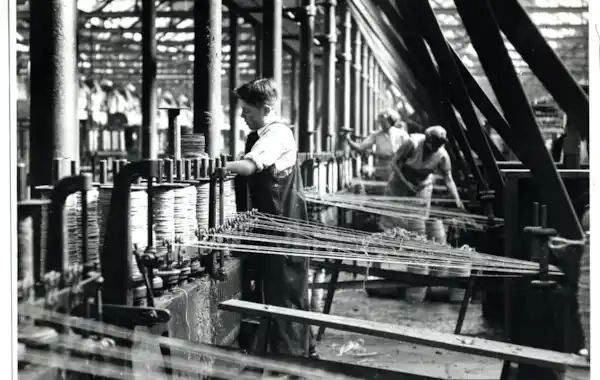26 May 2017
|
Find out about your Northern Ireland ancestors with this guide to the many resources held at the Public Record Office of Northern Ireland.
Find out about your Northern Ireland ancestors with this guide to the many resources held at the Public Record Office of Northern Ireland.
Collecting remit
The Public Record Office of Northern Ireland (PRONI) is the official repository for public records in Northern Ireland. It was established by the Public Records Act (NI) 1923 following the destruction of the Four Courts in Dublin and the Partition of Ireland. The Act empowers PRONI to take records created by Government Departments, local councils, non-Departmental public bodies and also provides the authority to accept privately deposited archives.
This wide remit for acquisition has resulted in PRONI becoming a one stop shop for archives in Northern Ireland. Visitors can consult at the same location church records, Board of Guardian indoor relief registers, school registers, big estate collections, testamentary papers, Land Registry records, and name-heavy archives relating to the courts, prisons and hospitals.
Searching PRONI’s records
Before you consider visiting PRONI, we would recommend that you read this information leaflet on how to start tracing your family tree.
Many important records for researching Irish family history were lost because of the destruction of the Four Courts. To fill the gaps, PRONI has collected a substantial number of census substitutes. The most important of these are church records. Please check our Church Guide to see what records we have relating to your parish.
PRONI’s online catalogue contains details of over 1.5 million PRONI records. The catalogue can either be used for searching or for hierarchical browsing.
Online Records
The PRONI website can be accessed here. A number of key collections have been digitised and are accessible online. These can be found under the subsection entitled Search Archives online. Online applications include the following:
- The PRONI historical map viewer which makes available six inch Ordnance Survey maps dating from 1832-1969. The maps are rich in detail and identify individual streets and houses.
- PRONI’s Valuation Revision books from 1864-1933 allow researchers to identify occupants for farms and properties across Northern Ireland. These should used in conjunction with the earlier Griffith’s Valuation which is available at Ask About Ireland.
- The PRONI wills index gives details of probated wills from 1858 onwards. Wills include information on the deceased (testator) and the property and goods they owned. Witnesses, beneficiaries and executors of a will (who are often related to the deceased) are also named.
- PRONI’s street directories application contains digitised copies of printed volumes listing names of individuals and/or businesses for 1819-1900. Most directories have details for Belfast and for the principal towns and villages in Ulster. The Belfast directories include an alphabetical listing of the principal inhabitants, merchants, shopkeepers etc. and their addresses; a listing of same by street and a listing of persons by profession and trade. The directories can be searched using Optical Character Recognition (OCR) functionality.
- PRONI’s Ulster Covenant application contains just under half a million original signatures and addresses of the men and women who signed the Ulster Covenant or corresponding women's Declaration on 28th September 1912.
 Study and research areas
Study and research areas
PRONI moved into its current premises in the Titanic Quarter area of Belfast in 2011. The new Headquarters is a landmark building within the government estate and provides state-of-the-art research areas. Access is free however visitors need to produce proof of identity, eg a passport or driving licence.
One of the elements of the Programme for Government is to improve cultural participation, and PRONI leads the way with a programme of over 100 conferences, exhibitions, workshops, events and group visits per year.
In December 2016, PRONI also introduced new rules and fees which permit users to copy many records using their own cameras/phones/tablets. Users can still pay for digitised copies upon request.
Public Record Office of Northern Ireland, 2 Titanic Boulevard, Titanic Quarter, Belfast BT3 9HQ; tel: 02980 534800; website.
Sign up for the PRONI Express newsletter
Follow PRONI on Facebook
Watch PRONI talks








(4).jpg)
